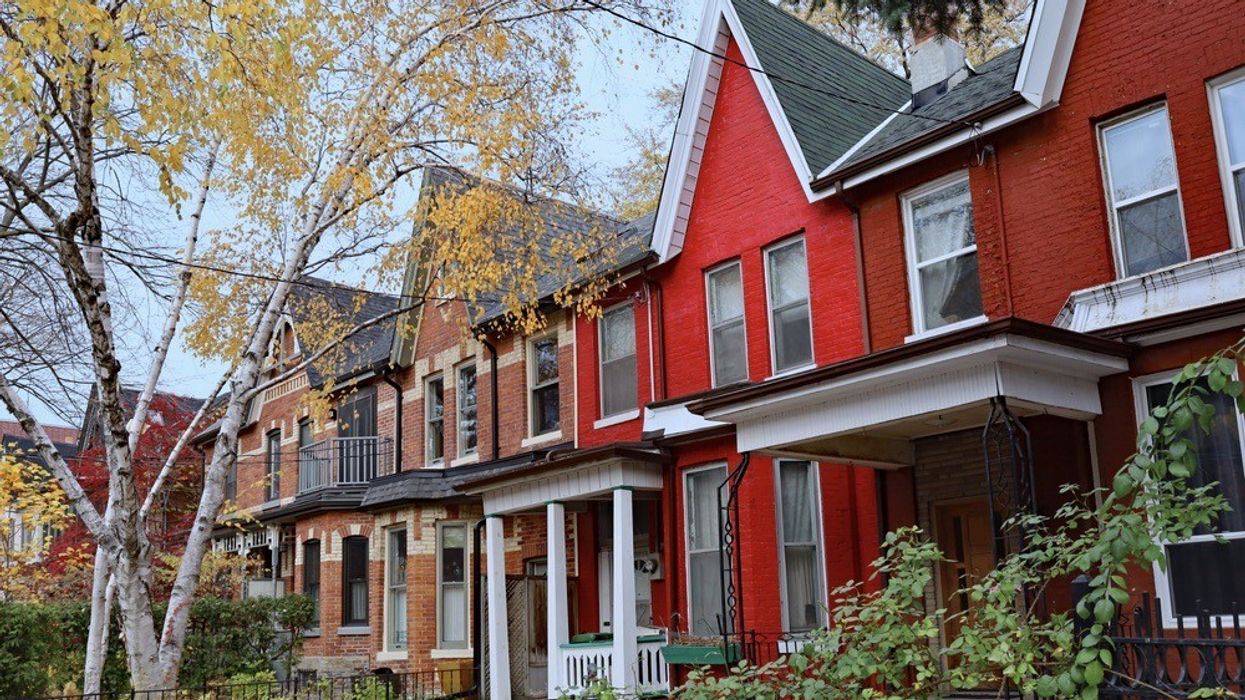It's no secret that Canada's housing market is heading down an unstable path. For starters, it's 'overheating', demand is extremely strong, and inventories are generally low, all while property values are soaring to levels outside of historical norms -- prompting for calls to policymakers to step in and take action.
Just last month, home sales recorded over Canadian MLS Systems climbed 6.6% between January and February -- and up 39.2% compared with a year ago -- to set another new all-time record. During the same period, the national average home price reached a record $678,091, up 25% from a year earlier.
To further show the state of Canada's housing market, senior vice-president in the Office of the CEO at Royal Bank of Canada, John Stackhouse, shared a new chart that revealed the value of Canadian home resales has now doubled to $45 billion a month.
This comes after values plunged to below $10 billion in 2020 amid the pandemic -- their lowest level in the past ten years.
Not only does the chart perfectly encapsulate the state of Canada's white-hot market, but it also raises concerns and poses the question: where exactly is the market heading?
Earlier this year, RBC economist Robert Hogue said the bank sees little that will stop activity or prices from reaching new heights in the year ahead.
"We forecast the national benchmark price to rise 8.4% to $669,000 and home resales to increase 6.5% to 588,300 units with almost all provinces showing gains," said Hogue.
READ: RBC Calls for Policy Response as Canadian Housing Market Becomes “National Concern”
Then last week, Hogue said that not only is Canada's housing market now a “national concern”, but it also calls for a policy response now to avoid the possibility of a costly correction down the road.
Hogue said policymakers need to step in and do something because an overheated housing market threatens to “destabilize the economy down the road if or when a correction occurs, with possible heavy costs for governments.”
“The threat is particularly potent because excessively high price expectations are widespread,” says Hogue, adding that Canada hasn’t had a market overheating of this scope since the late 1980s.
With the Bank of Canada likely to keep interest rates low to support the broader economy, Hogue said the responsibility to control the housing market could fall to local officials who have the most power to increase housing supply through permitting and zoning processes -- though higher levels of government would still have a role to play.
Hogue added that governments should also take a broader look at the support they provide to homeownership -- from national mortgage-lending rules to tax incentives for investors in residential real estate -- and the degree to which it contributes to extrapolative price expectations.
"Many Canadians believe the policy environment guarantees property values will rise indefinitely. Policymakers should put everything on the table, including sacred cows like the principal residence exemption from capital gains tax," said Hogue.
"This support was largely designed during times when interest rates were much higher, and in some cases to counter the effect of high rates. With the Bank of Canada committed to keeping interest rates low for an extended period of time, we believe policy support for home ownership needs to be recalibrated," added Hogue.





















